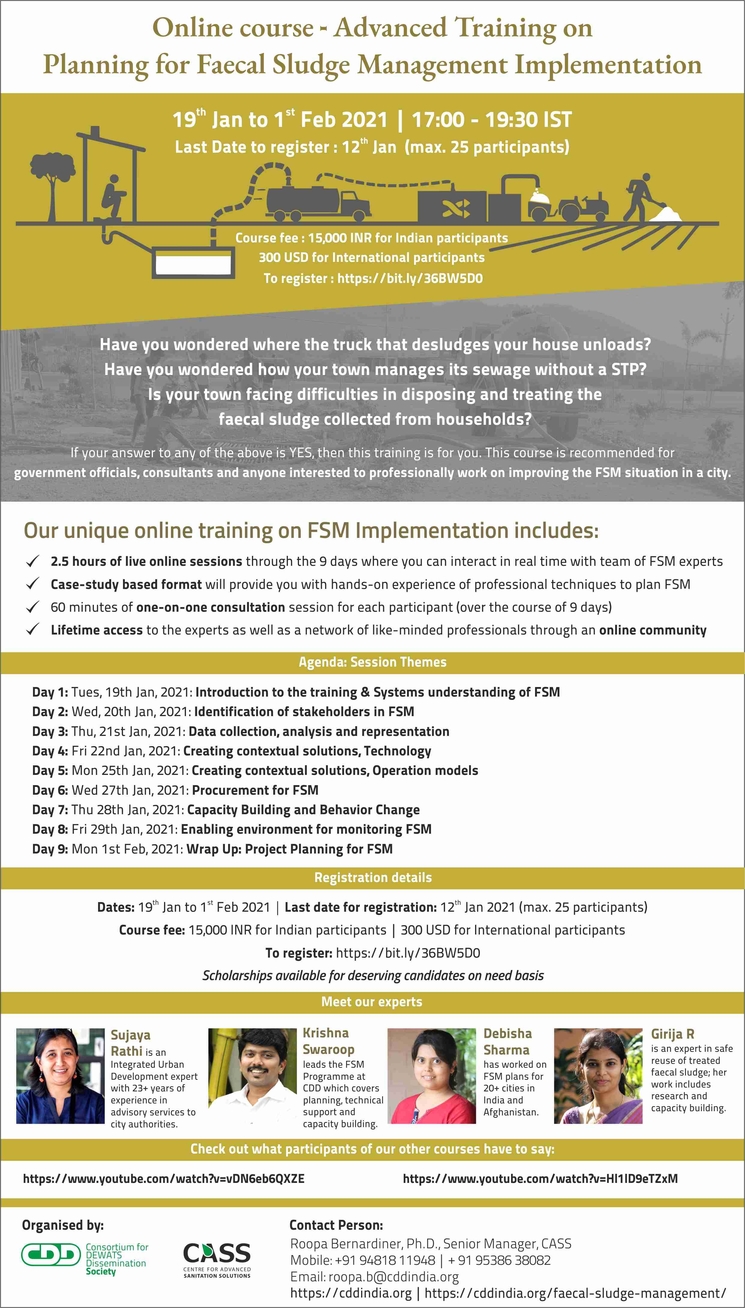Uttar Pradesh
Submit report on the need for clearance of National Waterway-1: NGT to MoEF
Posted on 23 Dec, 2020 02:17 PMNGT seeks report on the need for clearance of inland waterway projects in Ganga

Advance Training on Planning for Faecal Sludge Management Implementation
Posted on 22 Dec, 2020 01:09 PM
Download the overview and flyer of the training from below.
Study using geo-tagged bottles unravels plastic pollution
Posted on 09 Dec, 2020 04:53 PMPlastic pollution can travel thousands of kilometres in just a few months, finds new study using geo-tagged bottles

New packaged drinking water rules to apply from January 1, 2021
Posted on 09 Dec, 2020 12:43 PMRevised standards for packaged drinking water to apply from January 1st, 2021

Poor implementation of forest rights act hurts tribals
Posted on 02 Oct, 2020 10:35 PMIn pre-colonial times, India’s forestlands were mostly under the use of the local communities. Forest policies led to centralisation in colonial times with forestland being subject to commercial over-exploitation for revenue generation purposes. This, in turn, led to land alienation of forest dwellers and an overall increase in deforestation.

Overexploitation of groundwater highest in Punjab: Government
Posted on 23 Sep, 2020 01:23 PMPunjab no.1 in overexploitation of groundwater

Ganga's riverine communities in troubled waters
Posted on 01 Sep, 2020 03:04 PMA large section of the population living in the Ganga river basin still depends on the river for daily use activities and livelihood. Hence, the cleaning of the Ganga river’s water and making it safe for use remains a major goal for policymakers.

Drying veins of Ganga: Can we have ‘Nirmal Ganga’ with dying tributaries?
Posted on 27 Aug, 2020 05:22 PMIndia’s Himalayan rivers have been a cradle of civilisational development and a centre for faith and culture for ages. Ganga being a fertile basin has been a significant contributor to our agricultural economy as well as our river-based agrarian development.

Next phase of Swachh Bharat Mission-Urban to focus on water treatment
Posted on 25 Aug, 2020 08:26 PMSwachh Bharat Mission-Urban: Next phase to focus on water treatment and toilet waste disposal

Water projects get priority in MGNREGA amidst COVID-19
Posted on 18 Aug, 2020 01:54 PMLockdown in April to May 2020 due to COVID-19 led to the mass migration of workers from the cities to villages. Despite strict measures by the government to stop any movement, people facing lost jobs and high cost of living in the cities began to walk back or use whatever transportation was available to travel to their home villages.
